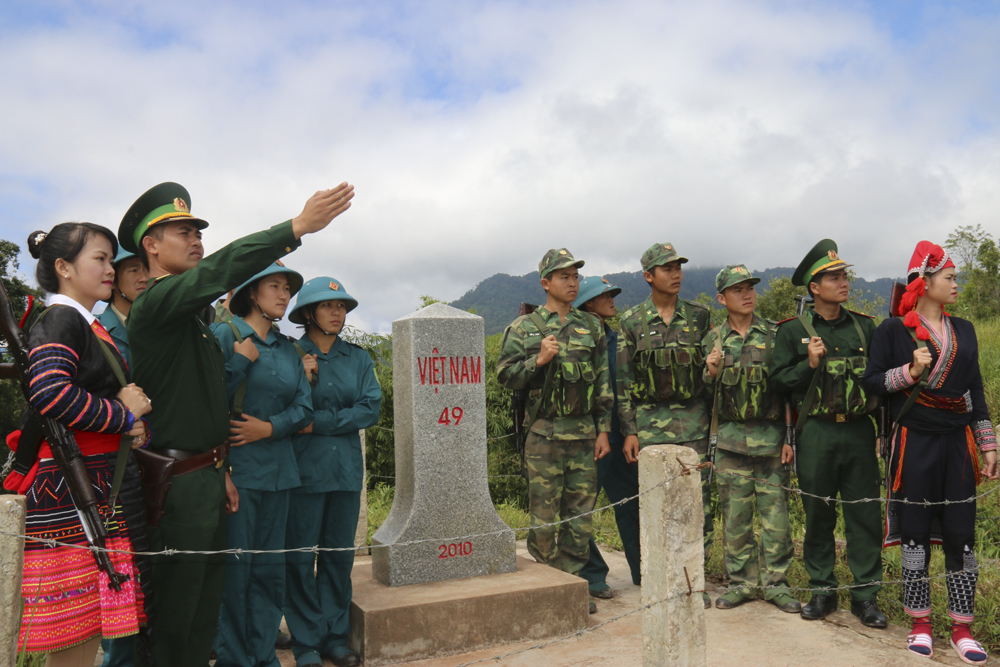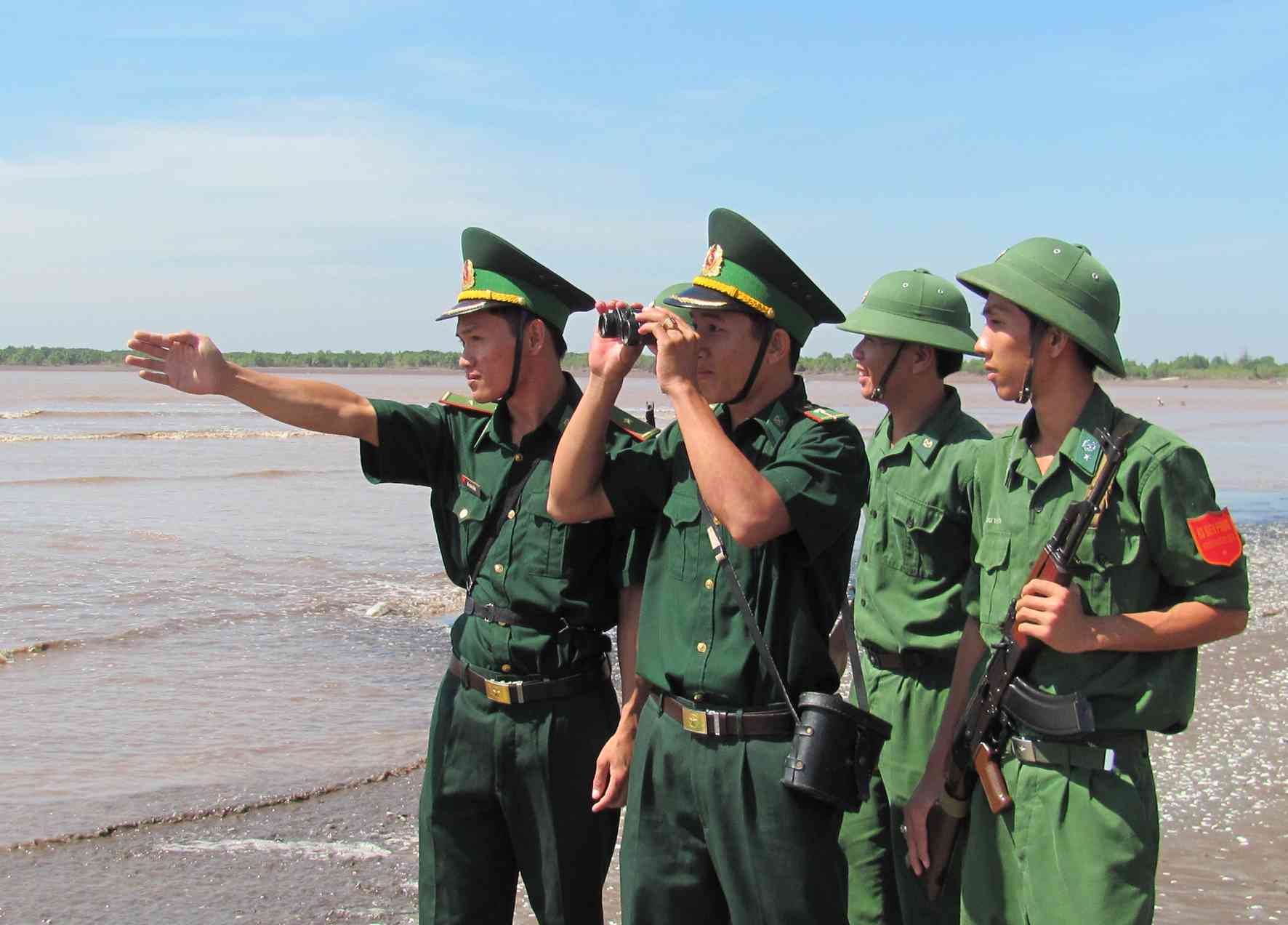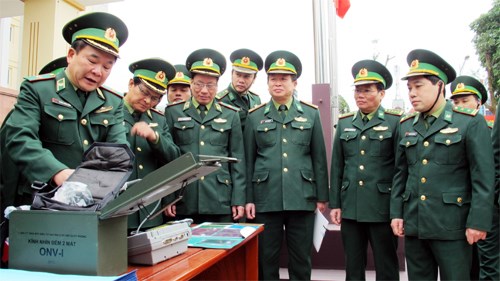Vietnam: Regime and policy toward the Border Guard
The Ordinance on Border Guard 1997 of Vietnam was promulgated on March 28, 1997. According to this Ordinance, the regime and policy toward the officers, professional army men, non-commissioned officers, soldiers, defense workers and public employees in the Border Guard shall comply with the legal documents governing the Vietnam People’s Army and the relevant legal documents.
Specifically, according to Article 29 of the Ordinance on Border Guard 1997 of Vietnam, the State shall have the following preferential regimes and policies suitable to the working characteristics and location of the Border Guard:
First, to invest in the construction of infrastructure and ensure the material and spiritual life for the officers and soldiers working at the Border Guard stations and posts and in mobile units.
In the annual State budget plans, the Government shall give priority to investment in the construction of barracks, power and clean water supply works; means of transport and audio-visual equipment for the border guard stations, posts and mobile units, and the construction of border-patrol paths.
Second, to provide responsibility allowances for Border Guard officers and soldiers who are personally performing the task of managing and protecting the border and islands.
While performing the task of managing and protecting the border areas and islands, the border guard officers and men shall be entitled to a border or island protection responsibility allowance, which is 0.3 time of the minimum salary level for salaried personnel or of the second-private rank allowance for non-commissioned officers and men.
Third, to provide allowances for Border Guard officers and soldiers who have worked for a long time in the border areas and islands.
Officers, professional military personnel and defense employees and officials serving in the border guard, who have been working in border highland areas and offshore islands for five consecutive years or more shall be eligible for a monthly seniority allowance at three levels: 0.2, 0.3 or 0.4 time of their minimum salary:
- From five to under 10 years: 0.2;
- From ten years to under 15 years: 0.3;
- 15 years or more: 0.4.
Fourth, to issue the regime and policy regarding the disabled, diseased and dead soldiers for the Border Guard officers and soldiers who personally protect the border and islands in especially difficult areas.
Border guard officers and men who die while performing the task of safeguarding border or islands in areas with special difficulties and hardships shall be considered for recognition as martyrs; if wounded and losing 21% or more of their working capacity, they shall be considered for recognition as war invalids; if suffering from diseases and losing 61% or more of their working capacity, they shall be considered as recognition as diseased soldiers in accordance with the Ordinance on Preferential Treatment for Revolutionaries, Martyrs and Martyrs' Families, War Invalids and Diseased Soldiers, War Resistance Activists and People with Meritorious Contributions to the Revolution.
The Ministry of Defense shall base itself on the nature and task of each border or island line and in consultation with the Ministry of Labor, War Invalids and Social Affairs to determine areas where the border guard faces special difficulties and hardships in order to strictly implement the policy towards martyrs, war invalids and diseased soldiers in accordance with this regulation.
Fifth, to issue the regime and policy on rewards for the Border Guard officers and soldiers who have engaged for a long time in protecting the border and islands.
The State Institute for Commendation and Reward shall, together with the Ministry of Defense, study and submit to the Government the regime and forms or commendation and reward for border guard officers and soldiers who have been involved in the border or island protection for a long time.
Sixth, to recruit young persons of ethnic minorities and families that move from elsewhere to reside in the border areas and islands for training and joining the Border Guard.
Every year, the border guard shall give priority to the recruitment of young people of ethnic minorities and families that have permanently settled in the border areas or islands so as to train them for a long service in the Border Guard.
To assign the Ministry of Defense to study and organize a border guard school for young cadets so as to meet the requirement of the above-mentioned task.
Seventh, to issue the entitlement regime and policy for the Border Guard officers and soldiers' families residing in the border areas and islands and the entitlement policy for the Border Guard officers’ and soldiers’ families living elsewhere.
Officers, professional military personnel and defense employees and officials serving in the border guard who bring their families to settle down in highland areas or islands shall be assigned land by the local authorities of the place where they settle and enjoy the subsidies like the households that come to build new economic zones or move to islands; the local authorities of such places shall manage and assist them in finding jobs and creating conditions for them to soon stabilize their families' lives.
Legal basis:
- The Ordinance on Border Guard 1997 of Vietnam takes effect from April 07, 1997;
- Decree No. 02/1998/ND-CP of Vietnam’s Government takes effect from January 21, 1998.
- 08 Rights of Social insurance beneficiaries in Vietnam from July 1, 2025
- Ministry of Health's response to the petition regarding overload condition at central-level hospitals in Vietnam
- Regulations on Study Time for Primary School Students in Ho Chi Minh City for the 2024-2025 School Year
- State Policy on Road Traffic Order and Safety from 2025
- Regulations on the System of National Defense Industrial Bases
- Subjects and Conditions Eligible for Amnesty in 2024
-

- Organization of the Border Guard according to ...
- 11:04, 01/04/1998
-

- Vietnam: State management over the Border Guard
- 11:11, 03/02/1998
-

- Vietnam: Responsibilities of state agencies towards ...
- 11:34, 19/01/1998
-
.jpg)
- Cases in which the Border Guard soldiers of Vietnam ...
- 10:55, 01/01/1998
-

- 08 Rights of Social insurance beneficiaries in ...
- 12:00, 01/09/2024
-

- Procedures for provision of land-related information ...
- 11:01, 01/09/2024
-

- Ministry of Health's response to the petition ...
- 10:00, 01/09/2024
-

- Regulations on Study Time for Primary School Students ...
- 09:00, 01/09/2024
-

- State Policy on Road Traffic Order and Safety ...
- 08:00, 01/09/2024
 Article table of contents
Article table of contents
